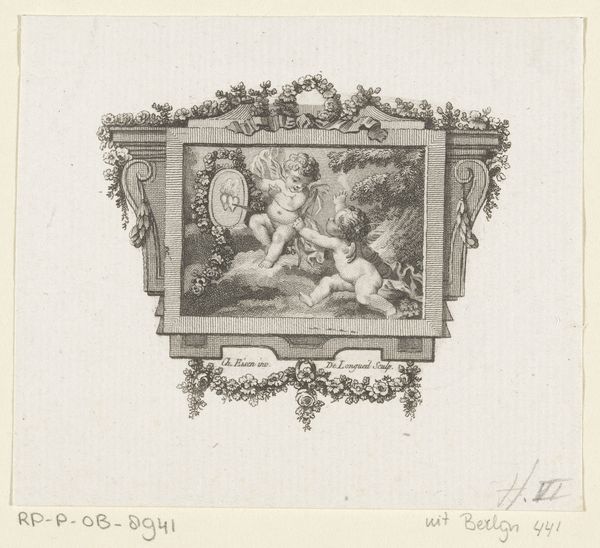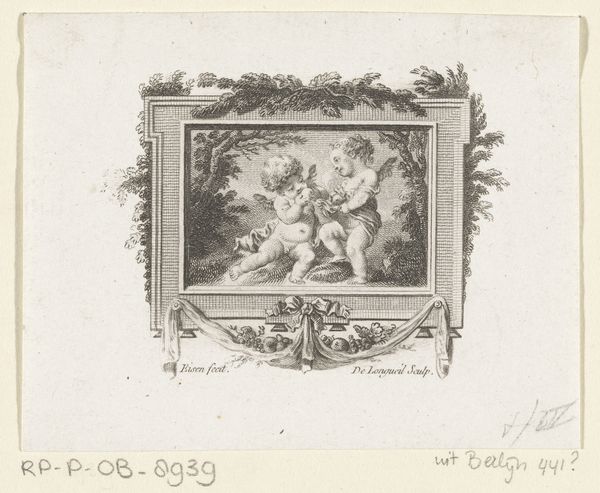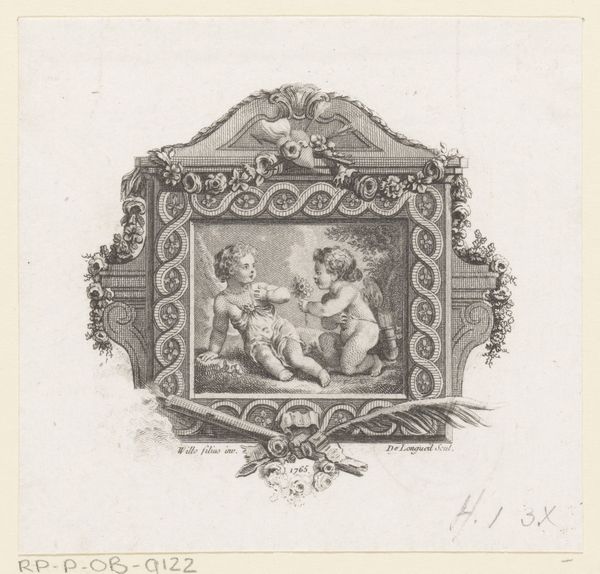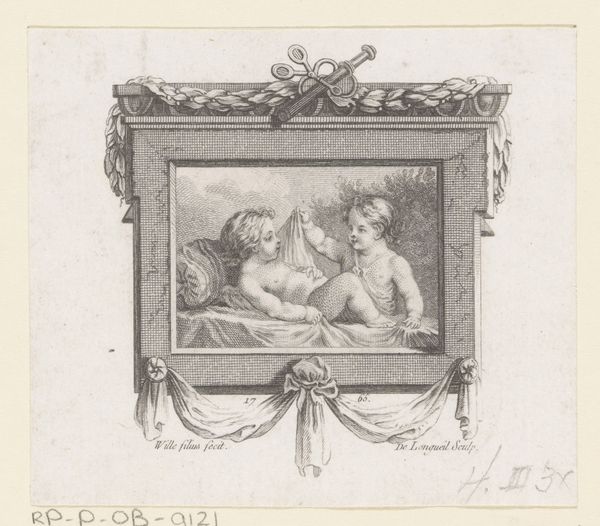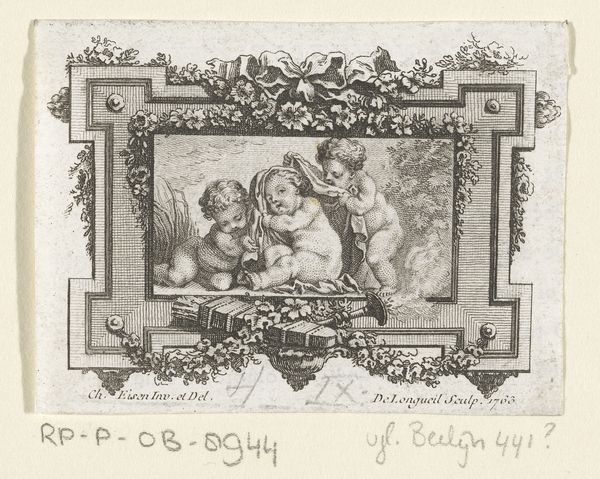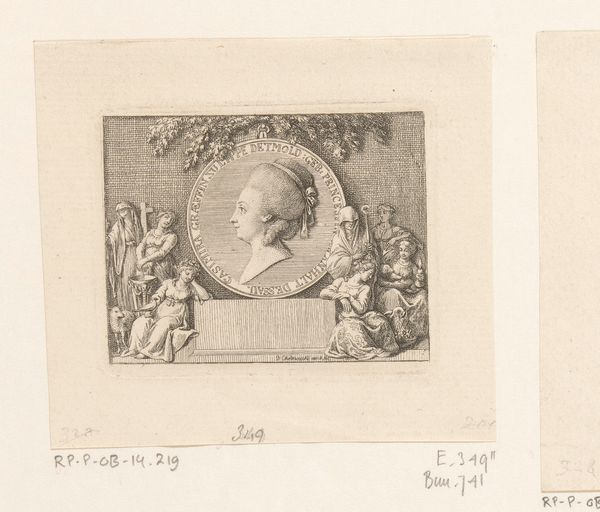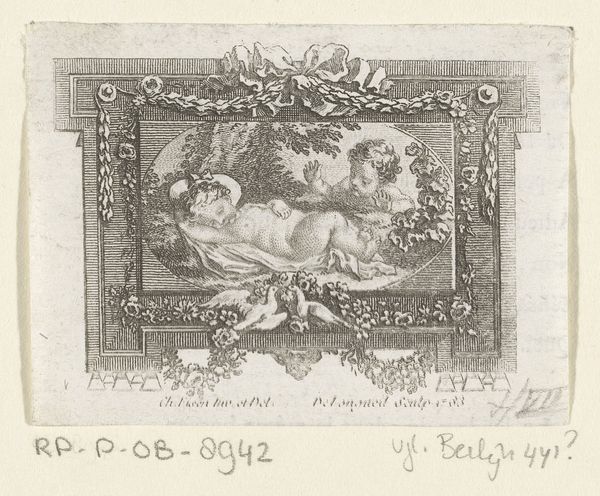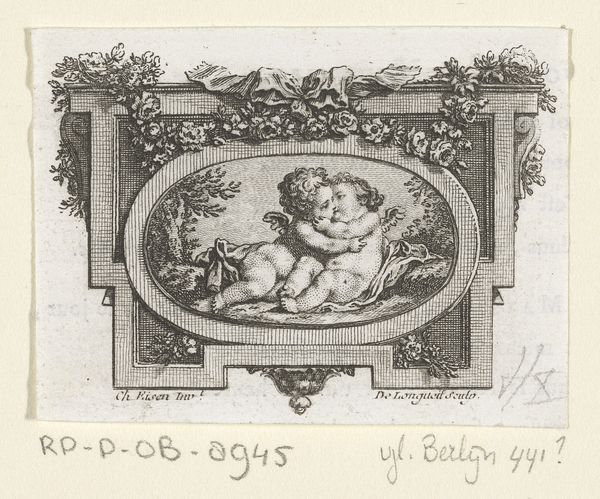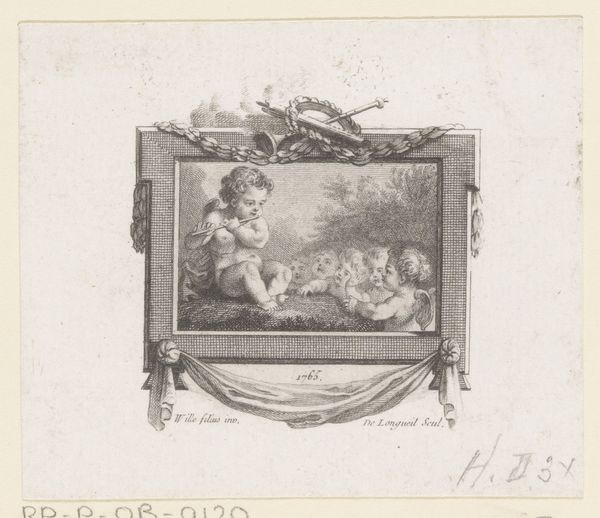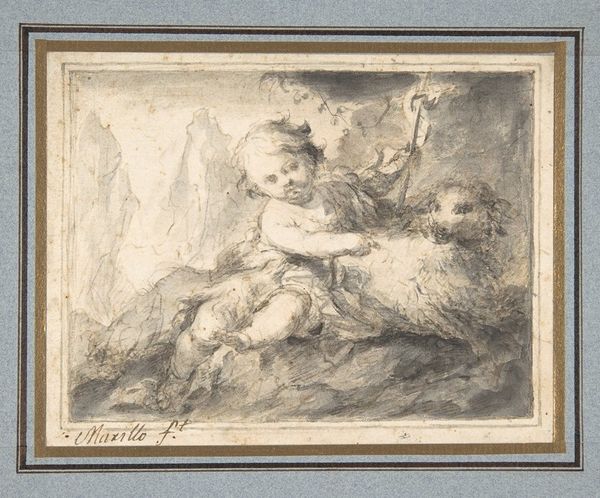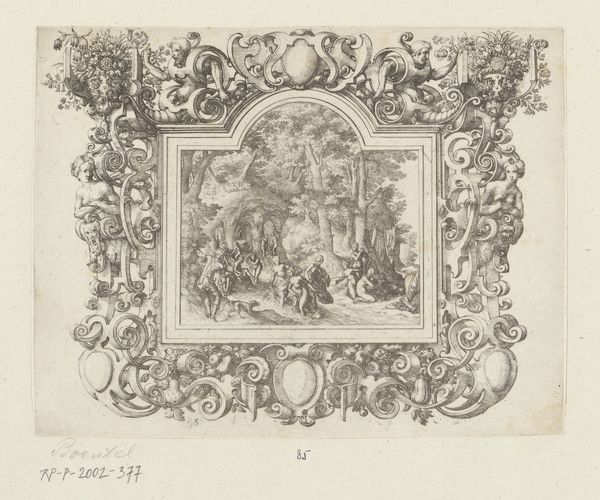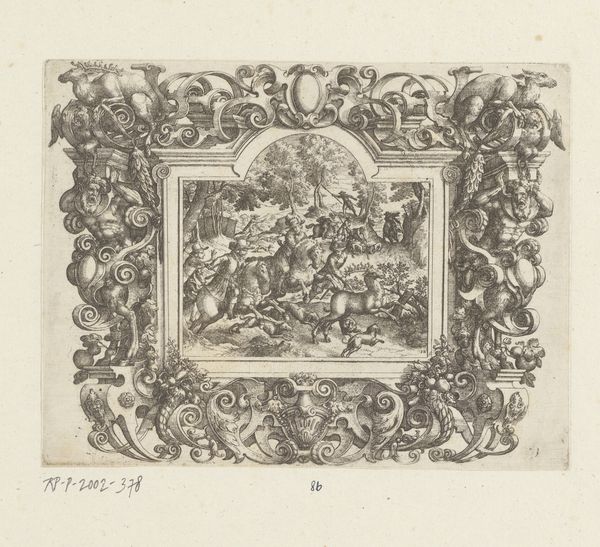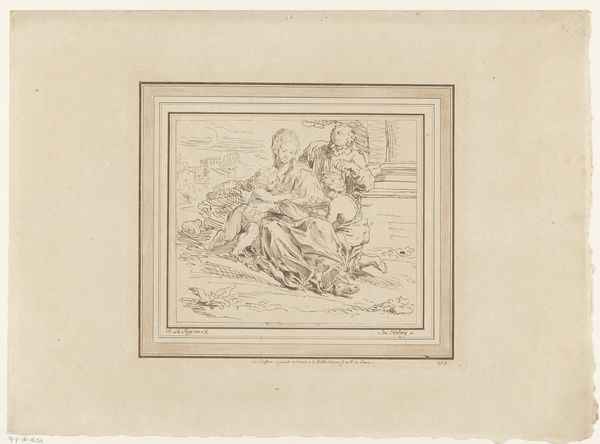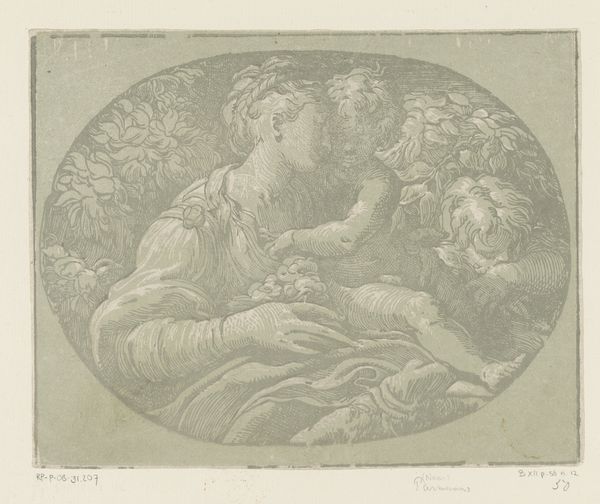
print, engraving
# print
#
old engraving style
#
figuration
#
genre-painting
#
engraving
#
rococo
Dimensions: height 87 mm, width 105 mm
Copyright: Rijks Museum: Open Domain
Joseph de Longueil created this small etching titled 'Vignet met vijf putti', sometime in the late 18th century. The vignette is a window into the visual culture of the Rococo period, where idealized cherubic figures were a common allegorical motif, often deployed to explore themes of love, innocence, and play. But let's think about this image in relation to the era’s social hierarchies and norms. The putti, with their implied innocence, were often employed by the aristocracy to suggest a sense of naturalness. At a time when the social order was anything but natural for the majority of the population. The image can be read as a form of cultural rhetoric, one that reinforces the status quo through idealized visions. The cherubs innocence contrasts starkly with the realities of child labor. The personal and the political intertwine in this image, reflecting a broader societal tension between lived experience and aspirational fantasy.
Comments
No comments
Be the first to comment and join the conversation on the ultimate creative platform.
